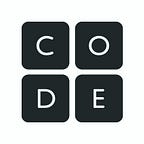5 questions with Adafruit’s Limor Fried
In honor of Women’s History Month, we’re profiling women in technology throughout the month of March. We hope sharing these stories will encourage girls and young women to start or continue studying computer science!
First up is Limor Fried, an electrical engineer who started Adafruit Industries in her dorm room at MIT. Adafruit makes open-source hardware devices and a number of electronics products, electronics components, tools and accessories for students and hobbyists alike. Circuit Playground Express, an Adafruit product, is also a core tool used in Code.org’s CS Discoveries curriculum.
Take it away, Limor!
Can you tell us where you work and what you do in your current role?
Hi there! My name is Limor Fried, I work as the founder and lead engineer over at Adafruit Industries — my company where I make and sell creative and useful electronic components. My role covers a lot of stuff: primarily I get to design circuit boards and then write the code that lives on the circuit board to make it do something interesting. For example, I designed the Circuit Playground Express board used by many Code.org students — that means using CAD (computer-aided design) software to place each part in just the right place, and then weave the circuit traces together. Then I write C code that lives in the brains of the main chip, to make LEDs light, sounds play, and sensors listen.
How did you first become interested in computer science?
When I was a kid, I got to play with LOGO at school. It was really simple to get started, and a lot of fun. I would draw my favorite cartoon characters and then print them out on a color printer (huge deal then!). As I played more with computers, I liked to see how I could take the creative thoughts in my head and use technology to bring them to life.
What barriers, if any, did you encounter on your journey learning computer science? What barriers, if any, do you still encounter in the workplace?
Computer Science is really hard — and it can be really unforgiving. One wrong parentheses, quote, backtick can cause days of work. So I’d say patience and perseverance is the most important skill. Eventually you’ll learn patterns of debugging and programming! One trick I’ve found to getting started is to start by re-creating a project that already works, then sloooowly adding to it. Rather than trying to start from the bottom up.
Can you tell us about someone (or a group or organization) who encouraged you to study computer science?
So many folks helped me on my journey. My middle school teachers were so encouraging — they let me come in after school to play games and noodle around with computers. My father was also interested in computers — he had programmed them in college on punch-cards. So I was lucky enough to have a computer at home! And when I was on a dial-up BBS (bulletin board system), this really nice person named Ira gave me their old disk of Borland Pascal for Mac — can you believe it, you had to pay for compilers back then… that was my first programming language!
Do you have any advice for girls or young women who want to start learning computer science?
Programming for programming-sake isn’t for everyone. For those who need inspiration to their dedication, try to come up with a goal project, something you’re personally excited about. Then figure out what you need to learn to get there! I really wanted my own MP3 player, so I learned how to build one. Striving for a goal will light a fire and help you overcome the challenges that you will face learning computer science.
Thank you for your insight, Limor! Stay tuned for the next installment of our Women’s History Month “5 questions with” series coming next week. Find more resources for inspiring girls and young women to learn computer science here.
-Kirsten O’Brien, Code.org
